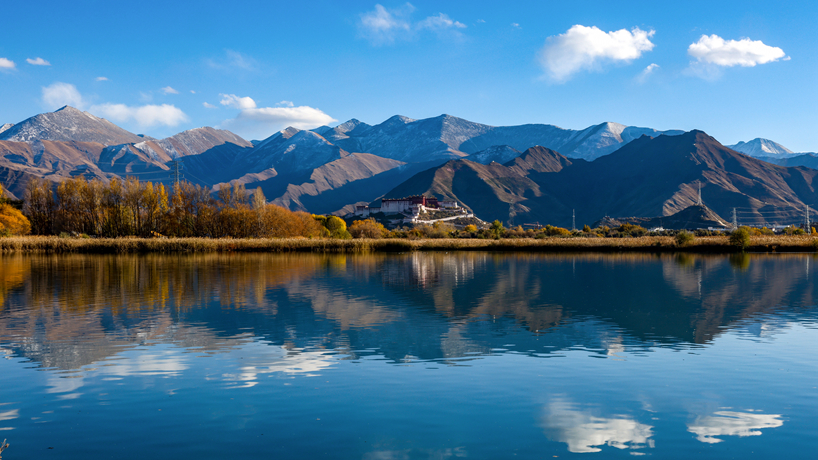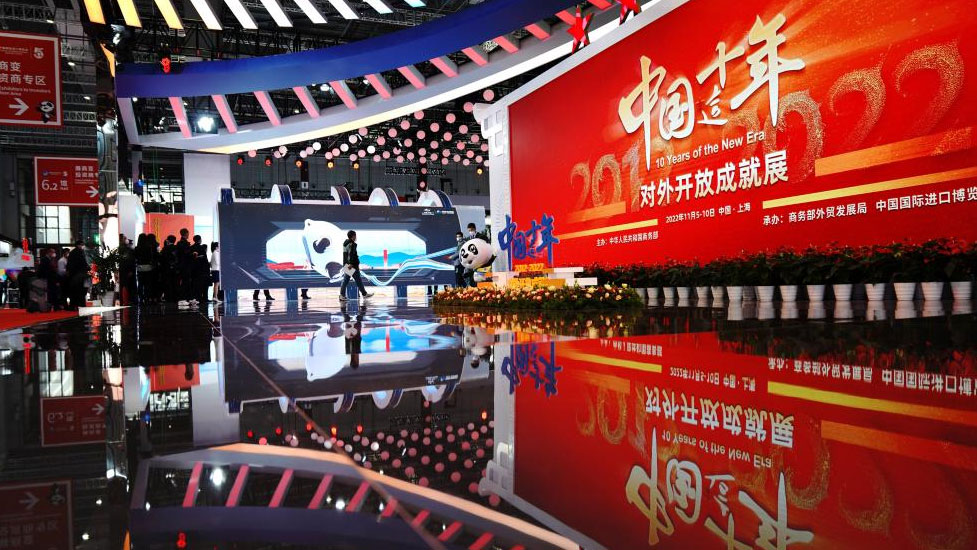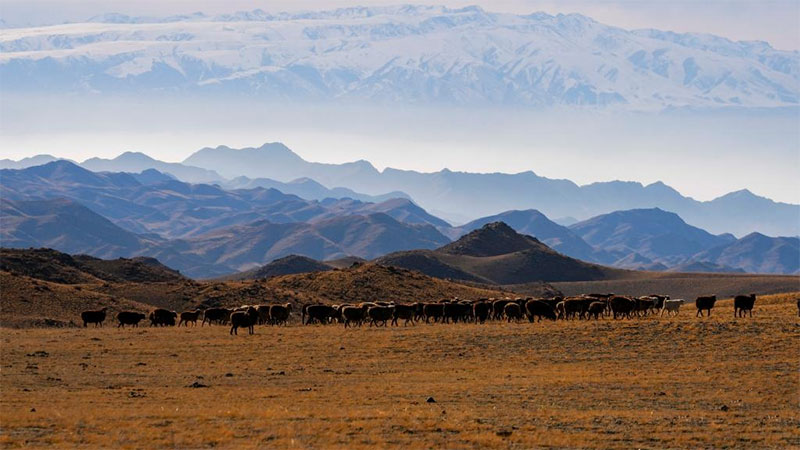Dali people and Erhai Lake: harmony between man and nature
He Licheng is a 55-year-old fisherman and farmer at Gusheng Village, which is located beside Erhai Lake in Dali Bai Autonomous Prefecture of South China’s Yunnan Province. Like other Bai people, the ethnic group native to Dali, he has always seen Erhai Lake as a mother lake, and witnessed the changes it has gone through. The ups and downs of his life are closely intertwined with the water.
Childhood memory: beautiful waterside scenery
“Swimming in Erhai Lake was my favorite thing to do when I was young, and the water in the lake was clear,” He Lichen recalls a childhood filled with joy. At that time, Erhai Lake was fairly clear and the water visibility was as far as 8 meters. He added that when there wasn’t enough water in the village's wells for villagers to drink before the rainy season, they fetched water directly from Erhai Lake. Ottelia acuminata floated on the lake like little white boats, giving a beautiful view of the lake from the waterside.
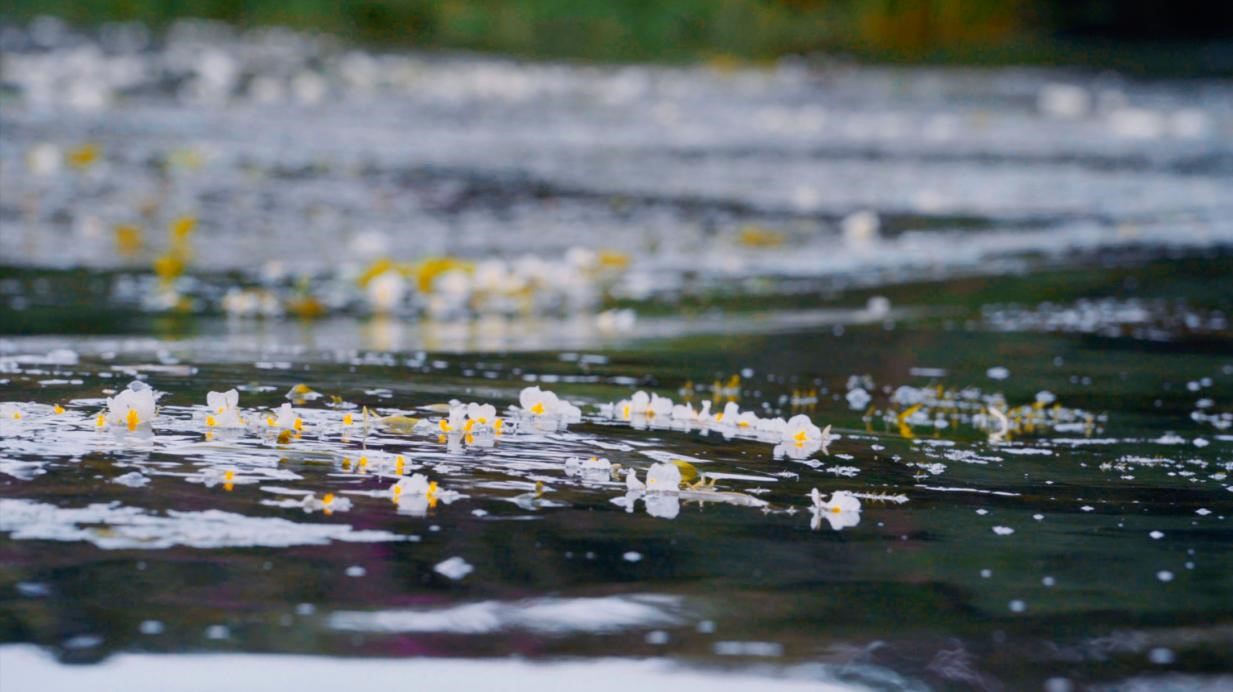
Ottelia acuminata, a sign of high quality water, floats on Erhai Lake in Dali Bai Autonomous Prefecture of South China’s Yunnan Province, July 18, 2022. (People’s Daily Online/Yuan Meng)
Fish farming and guesthouse: making a living beside Erhai Lake
He Licheng’s childhood flew by quickly, and he soon grew up and earned a living by fishing beside Erhai Lake. He obtained a fishing boat, built a fishpond in 1983 after working hard night and day. However, due to rapid economic development, a dense population, and changes in lifestyle, the lake’s water quality declined dramatically. It was only then that He came to realize that the mother lake Erhai had become diseased due to overfishing. To protect Erhai Lake and restore the ecosystem, the local government intensified pollution prevention and control efforts and banned the use of fish cages and motor fishing boats.
He left Erhai Lake and went far away to begin a 16-year period of fish farming. To save money and keep running his fishing business, He could not be with his family, and had to spend the Mid-Autumn Festival and the Spring Festival alone for 10 years. He dreamed of being able to return to his hometown and make a living.
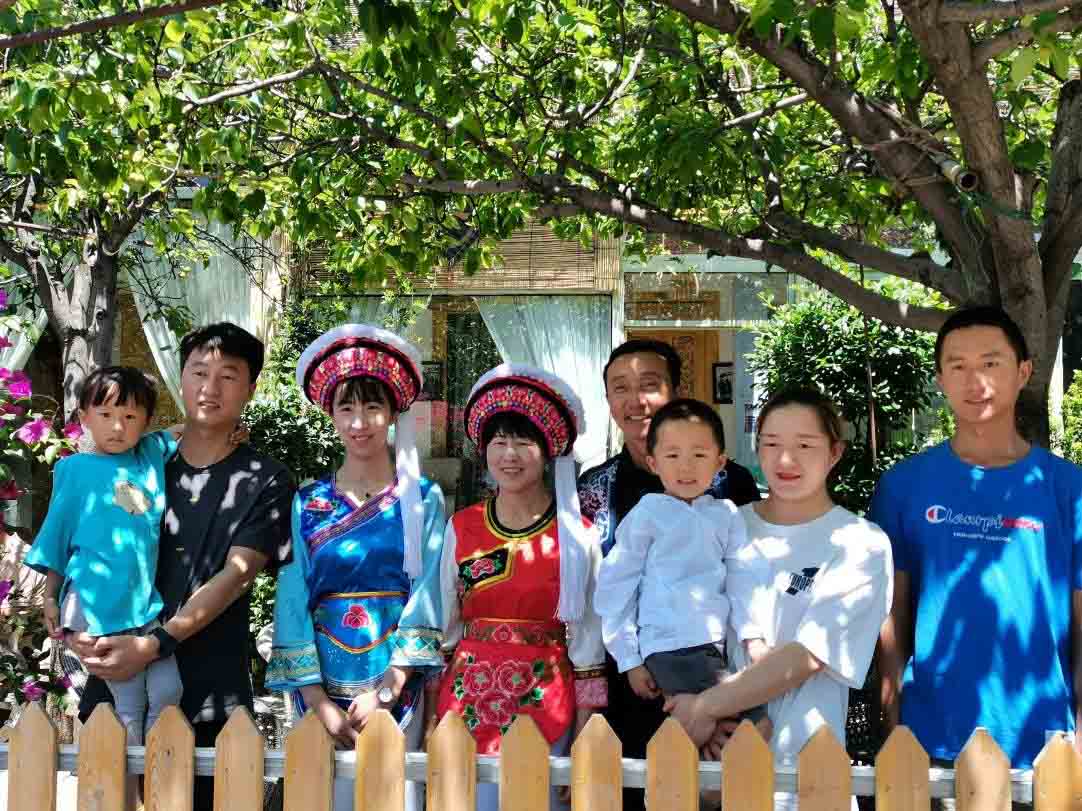
He Licheng and his family smile joyfully in front of their guesthouse in Dali Bai Autonomous Prefecture of South China’s Yunnan Province. (Photo provided by He Licheng)
In 2014, He Licheng’s dream came true when he opened the first guesthouse in Gusheng village.
In 2015, President Xi Jinping, also general secretary of the CPC Central Committee, visited Erhai Lake during an inspection tour. "Back then, the general secretary was standing here. He stressed ecological protection of Erhai Lake and called on us and the local government to properly protect the lake's natural beauty forever," recalled He Licheng.
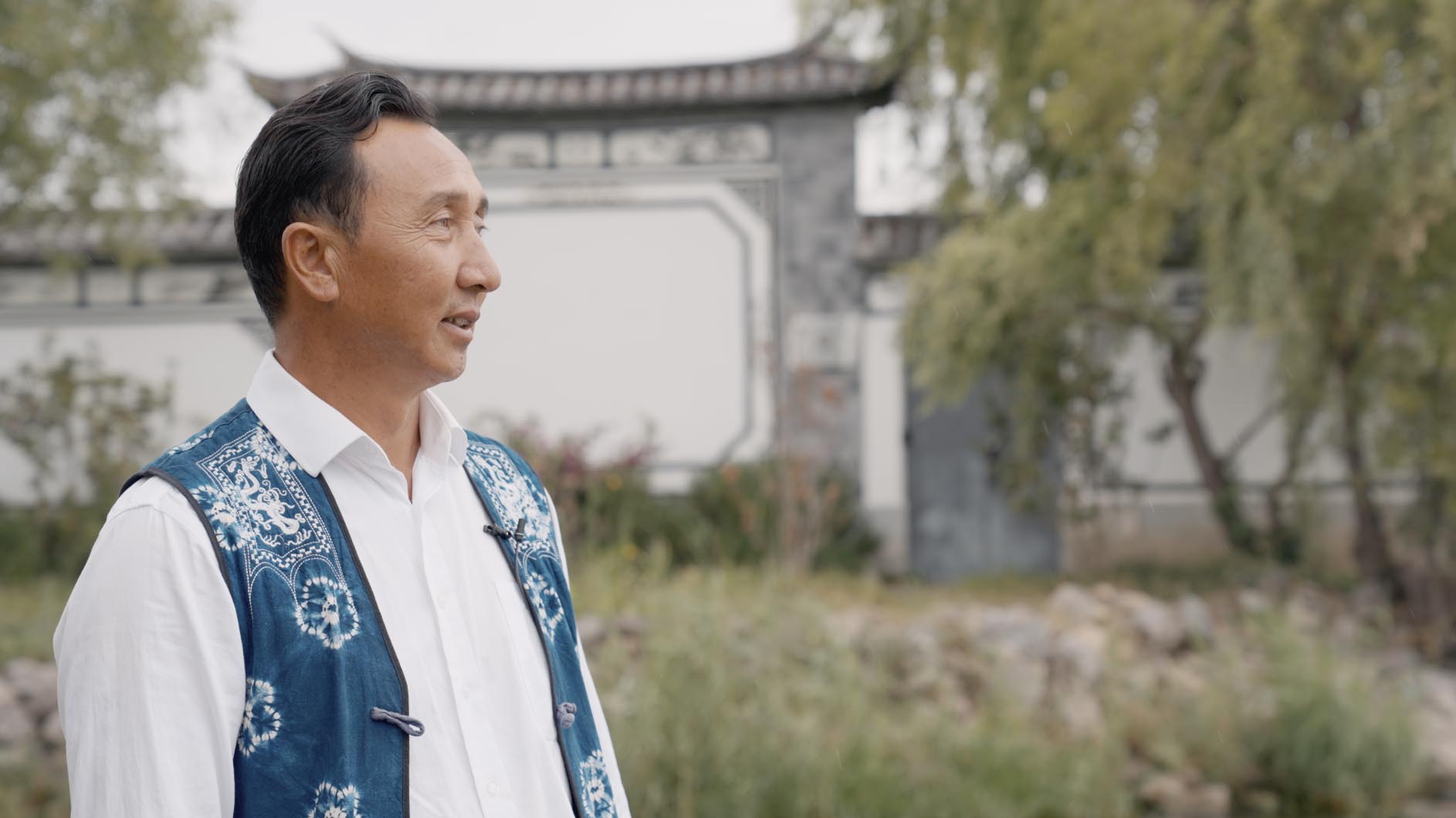
He Licheng stands at Gusheng Village in Dali Bai Autonomous Prefecture of South China’s Yunnan Province, July 17, 2022. (People’s Daily Online/Yuan Meng)
In 2018, Dali city implemented a plan to protect Erhai Lake by drawing three ecological conservation "red lines" covering the lake area, coastal area and core protection zone to identify areas of high ecological value for conservation and restoration. According to the plan, one third of He's guesthouse was in the zone demarcated by the red lines, and had to be demolished.
"It was hard when I heard the news. Business at my guesthouse had just begun to improve after years of effort, but now it was going to be torn town," the guesthouse keeper recalled. Walking alongside Erhai Lake, He looked back on his childhood and the years he spent away from home due to Erhai Lake’s pollution, and deliberated on President Xi’s remarks: “We should protect the environment like we protect our eyes”. All of a sudden, He became clear, “I was born and raised by the side of Erhai Lake. Erhai Lake is my mother lake. How can I leave my mother lake and not protect her?”
The Erhai Lake Ecological Corridor was established, featuring Bai ethnic folk houses, and the lake itself became more beautiful by the day. Walking along the corridor after dinner, He feels relaxed and satisfied at the sight of soft willows swaying in the night breeze. It has made him more determined to protect Erhai Lake.

Photo taken on July 21, 2022 shows Bai architecture in harmony with Erhai Lake . (Photo/Lyu Qiang)
The protection of Erhai Lake not only involves the efforts of local residents, but also policies and guidance at government level. Gusheng village has developed green organic planting, and built agricultural green and organic planting bases to prevent pollution from agricultural activities.
Lucid water and better lives: today and tomorrow
This year, Zhang Fusuo, an academician of the Chinese Academy of Engineering, as well as president and professor at the National Academy of Agriculture Green Development, established the "Dali Gusheng Science and Technology Backyard" in Gusheng village with his team. Their research focuses on novel environmentally friendly fertilizers. He Licheng has contributed 150 mu (about 10 hectares) of farmland as an experimental field, and hopes to contribute to the protection of Erhai Lake and encourage more Gusheng villagers to engage in green development in his hometown.
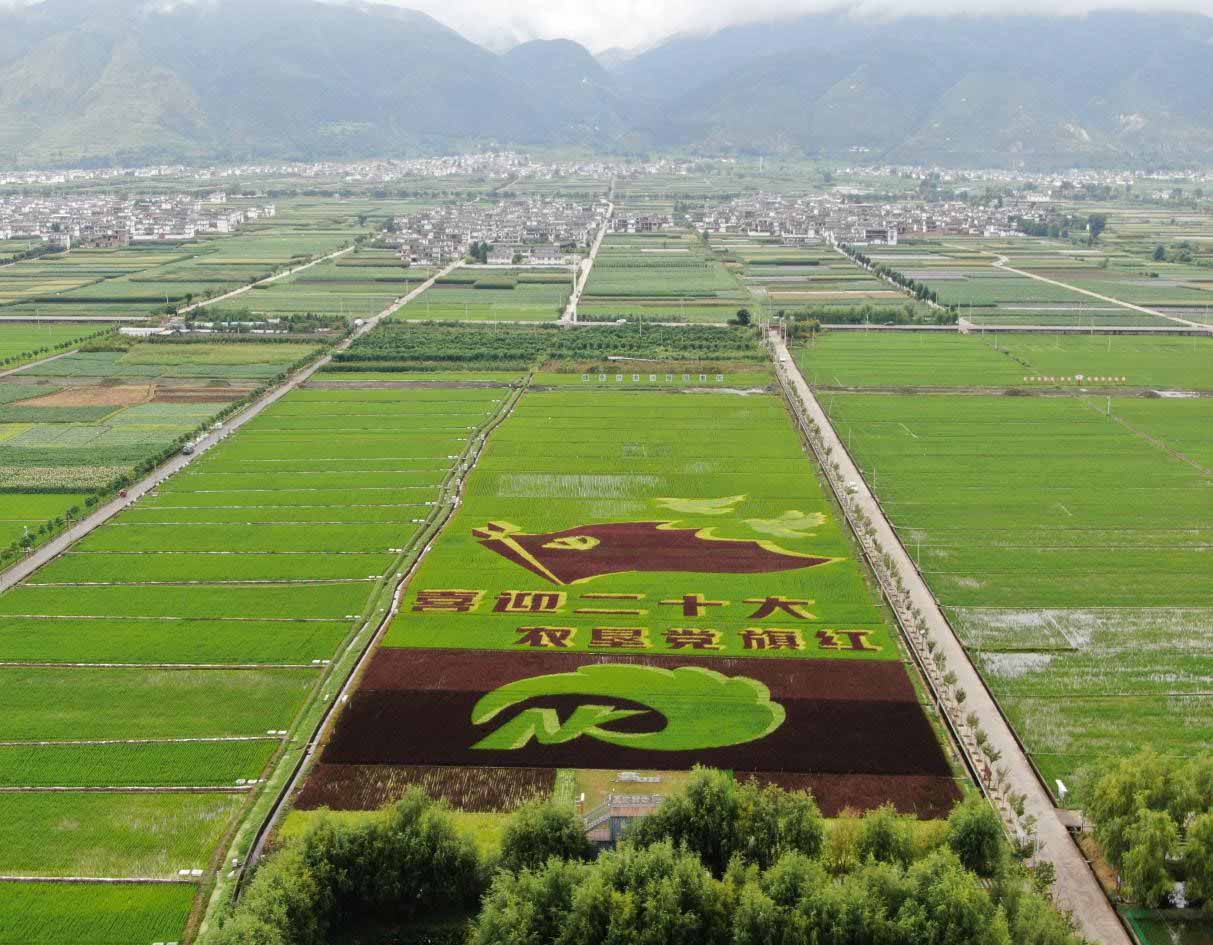
Rice paddy art is seen at the experimental field of Gusheng village in Dali Bai Autonomous Prefecture of South China’s Yunnan Province, July 17, 2022. (Photo/Lyu Qiang)
He Licheng has been invited to give instructions on farming to students and has become an "amateur professor", which was something he didn't even dare imagine could happen before.
He’s fate is closely tied to that of Erhai Lake. Local residents here share weal and woe together with their mother lake. Through the implementation of ecological environment protection polices and innovative measures, Erhai Lake has proven to be another great achievement in China’s environmental protection and green development.
Photos
Related Stories
Copyright © 2022 People's Daily Online. All Rights Reserved.






